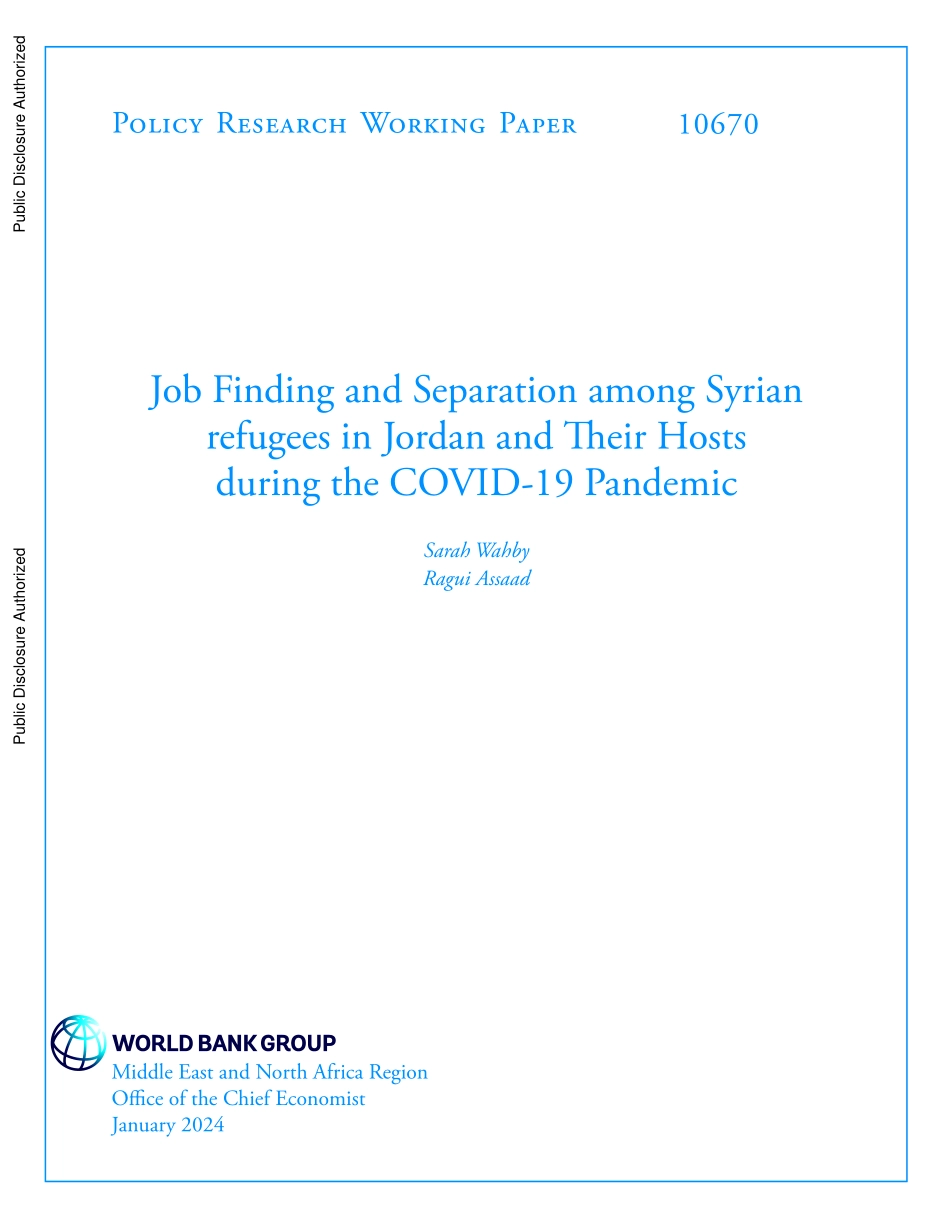Policy Research Working Paper10670Job Finding and Separation among Syrian refugees in Jordan and Their Hosts during the COVID-19 PandemicSarah WahbyRagui Assaad Middle East and North Africa RegionOffice of the Chief EconomistJanuary 2024 Public Disclosure AuthorizedPublic Disclosure AuthorizedPublic Disclosure AuthorizedPublic Disclosure AuthorizedProduced by the Research Support TeamAbstractThe Policy Research Working Paper Series disseminates the findings of work in progress to encourage the exchange of ideas about development issues. An objective of the series is to get the findings out quickly, even if the presentations are less than fully polished. The papers carry the names of the authors and should be cited accordingly. The findings, interpretations, and conclusions expressed in this paper are entirely those of the authors. They do not necessarily represent the views of the International Bank for Reconstruction and Development/World Bank and its affiliated organizations, or those of the Executive Directors of the World Bank or the governments they represent.Policy Research Working Paper 10670Refugees face important barriers to participation in the formal market, which locks them in informal employ-ment and makes them more vulnerable to shocks. Using data from Jordan, this paper compares the job finding and separation rates of Syrian refugees to those of their hosts before and after the onset of the COVID-19 pandemic. The findings show the change in these rates over time for Syrians to be similar to those of their Jordanian hosts prior to the pandemic, with a significant divergence after the start of the pandemic. Distinguishing between Syrians living in camps and those living in host communities shows that the Syrian disadvantage was entirely explained by living in camps.This paper is a product of the Office of the Chief Economist, Middle East and North Africa Region. It is part of a larger effort by the World Bank to provide open access to its research and make a contribution to development policy discussions around the world. Policy Research Working Papers are also posted on the Web at http://www.worldbank.org/prwp. The authors may be contacted at wahby001@umn.edu and assaad@umn.eduJob Finding and Separation among Syrian refugees in Jordan and Their Hosts during the COVID-19 Pandemic1 Sarah Wahby2 and Ragui Assaad3 JEL codes: J15, J61 Keywords: refugees, job separation, job finding, camps, COVID-19 Topics: Refugees and Jobs, Labor Markets, Labor and Employment Laws and Regulations, Coronavirus (COVID-19) Acknowledgements This work was supported by the MENA Chief Economist Office under the labor and gender research programs (TTLs: Nelly Elmallakh and Nazmul Chaudhury). We appreciate the comments of participants in the MNACE authors’ workshop, particularly our discussant Hai-Anh Dang. 1 This paper is a product of the Office of the Chief Ec...


